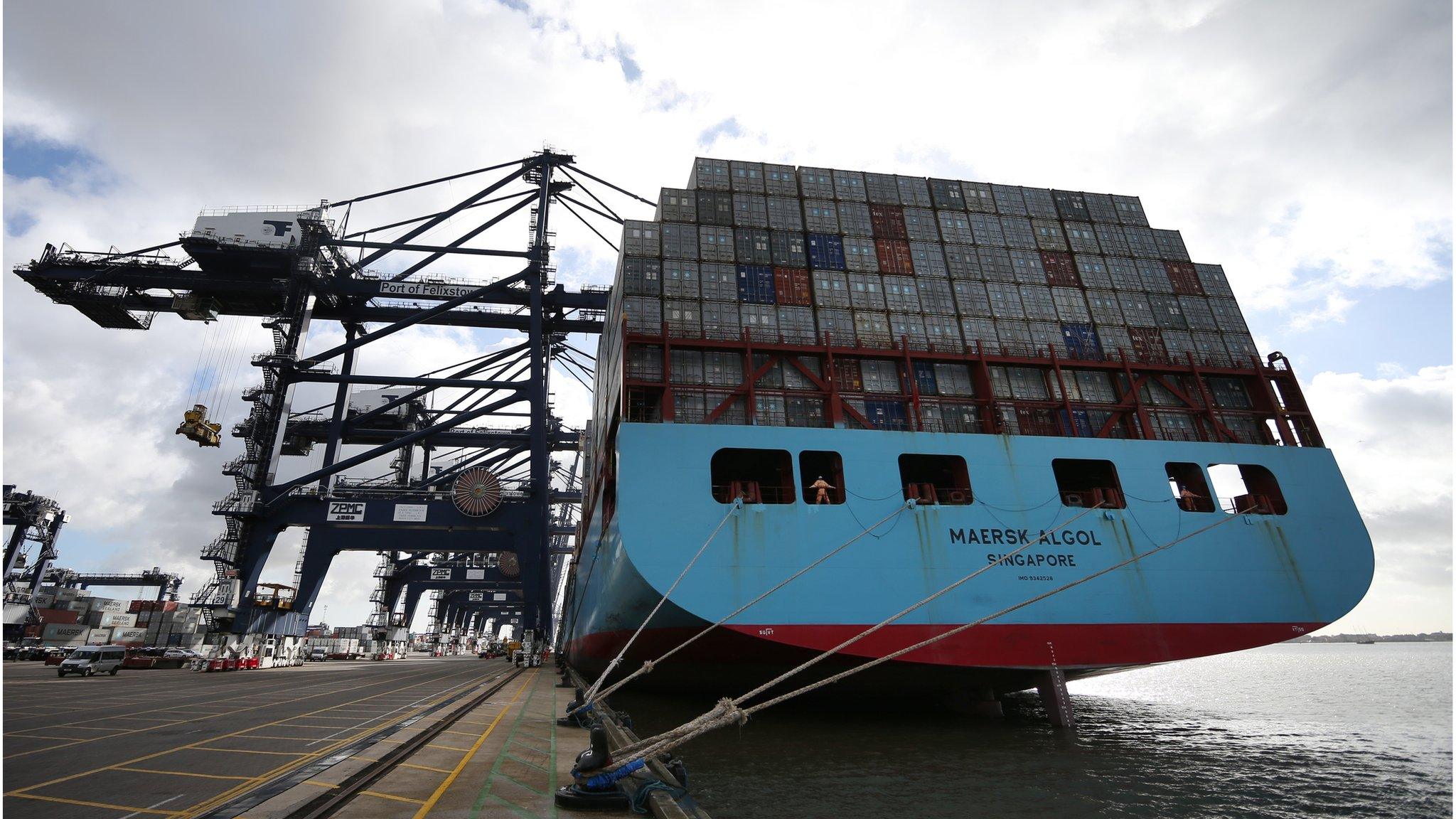Is Theresa May the UK's Merkel?
- Published
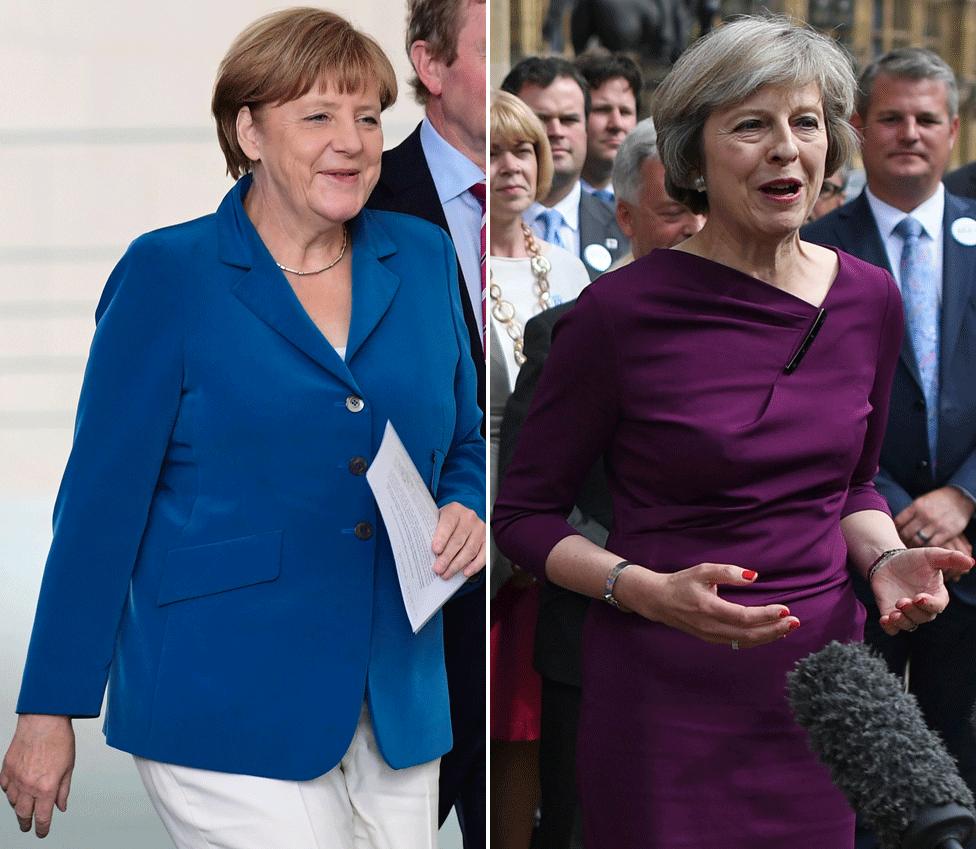
German media have greeted the arrival of the UK's new Prime Minister Theresa May with headlines such as "England's Angela Merkel", "May is Britain's Merkel," or simply "The British Merkel".
But does the new British PM really have much in common with Europe's most powerful leader?

Women in charge
No-one ever compared the haircuts and outfits of Angela Merkel's predecessor Chancellor Gerhard Schroeder with those of his UK counterpart, Tony Blair.
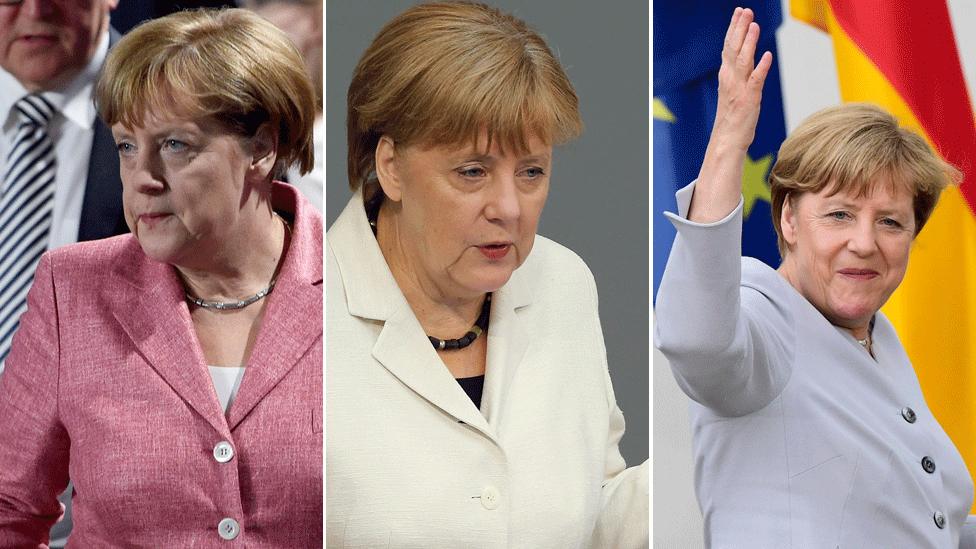
Angela Merkel has developed a preference for alternating coloured blazers
The fact that comparisons are being drawn between the two women arguably says more about sexism in society than any actual similarity between Angela Merkel and Theresa May.
The same goes for the gendered use of the terms "steely" and "ice queen", which have been used to describe both women. The point that both are married but without children would also not be made about male leaders.
But it all proves that gender does play a role, and both women have worked their way to the top in male-dominated parties.
Both women have had to deal with the media's scrutiny of aspects of their appearance: Theresa May's leopard-print shoes and Angela Merkel's hairstyle.
There was much media chatter when the chancellor's pudding-bowl scientist look was transformed into her current battle-ready, hair-sprayed helmet.
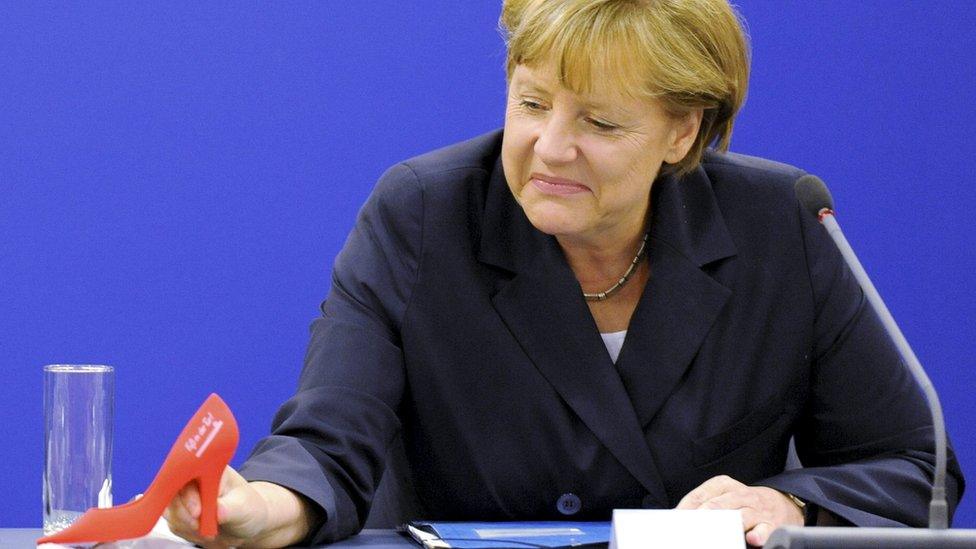
Angela Merkel's footwear has never come in for quite the same scrutiny as Theresa May's
Mrs Merkel very quickly came up with the female equivalent of an anonymous male political outfit, with alternating coloured blazers. They were standard enough not to detract from the matter in hand, but bright enough to stand out amid the grey suits of an EU summit.
Cameron bows out: Live updates
Merkel: Negotiations with UK will be difficult

Power of the Church
Much has been made of the fact that both Mrs May and Mrs Merkel are the daughters of Protestant clergymen.
What is often left out is that Angela Merkel's childhood in a Protestant family in communist East Germany made her an outsider. Christianity was viewed by the ruling Communists with suspicion and was seen as a dissident force.
And the Church played a crucial role in fall of the Berlin Wall, whereas in Britain the family of an Anglican vicar would traditionally be very much part of the establishment.

Theresa May is arguably more of a German-style Christian Democrat than a Thatcherite Conservative
But for both politicians their religious background does appear to inform their policy decisions. Chancellor Merkel has justified her decision to welcome in refugees as a moral imperative, and her Christian Democrat party, founded on religious values, is not just conservative, but also sees the welfare of wider society as part of its brief.
Theresa May's recent comments about social reform and reducing inequality indicate that deep down she may be more of a German-style Christian Democrat than a "no such thing as society" Thatcherite Tory.

Why compare the two anyway?
Because Angela Merkel will be Theresa May's most important negotiating partner in Brexit talks between the EU and London.
The German chancellor never tires of saying that this is a decision for 27 EU members. But it is her voice that will be the most influential in the room.
Mrs Merkel is the longest serving leader in the EU, and as head of Europe's strongest economy, the most powerful. The talks will be led by the member states, not the European Commission, meaning that the chemistry between the British and German leaders will be crucial.
It has not gone unnoticed that both politicians like cooking and hiking: admirably down-to-earth pursuits for voters who have had enough of slick, political PR.
Both women are renowned for their consistency and attention to detail, and there is an almost audible sigh of relief in the corridors of power in Berlin that the fight for power among the Conservatives did not become a protracted fight.

Filing for divorce
Germany was saddened by the UK's vote to leave the EU. It is seen here as an emotional break-up. But the priority for many in Berlin is to make the divorce as swift as possible, to avoid economic damage.
So far German politicians have been cautious in their comments about Theresa May, possibly because UK politics has become so unpredictable.
The only thing Chancellor Merkel has said about her UK counterpart is that that her first duty will be to "clarify what sort of future relationship Britain wants to build with the EU". Then Article 50 must be triggered, says Mrs Merkel, to start the two-year clock on the UK's exit from the EU. Only after that can negotiations start.
This will be the first clash between the two leaders, as Theresa May wants to start talks before triggering Article 50.

Competing pressures on Brexit
The biggest challenge is that they have opposing aims when it comes to what Brexit should look like.
Theresa May will now be under pressure from Leave campaigners to somehow deliver full trade access to the European single market, while at the same time control migration from the EU.
But Angela Merkel has been adamant for years that, despite what Brexiteers have been claiming, this is not possible.
For Germany the single market is not simply about free trade. It's also about free movement of workers. One without the other would undermine the whole project.
Both women have a reputation for being good negotiators and for having a non-ideological and flexible approach to problem-solving.
They're going to have to be.
- Published19 June 2016
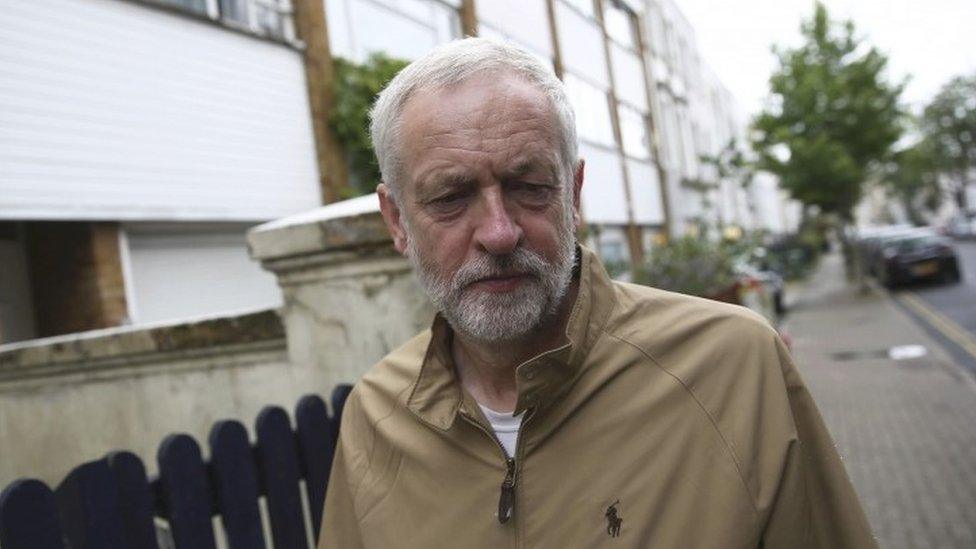
- Published27 June 2016
